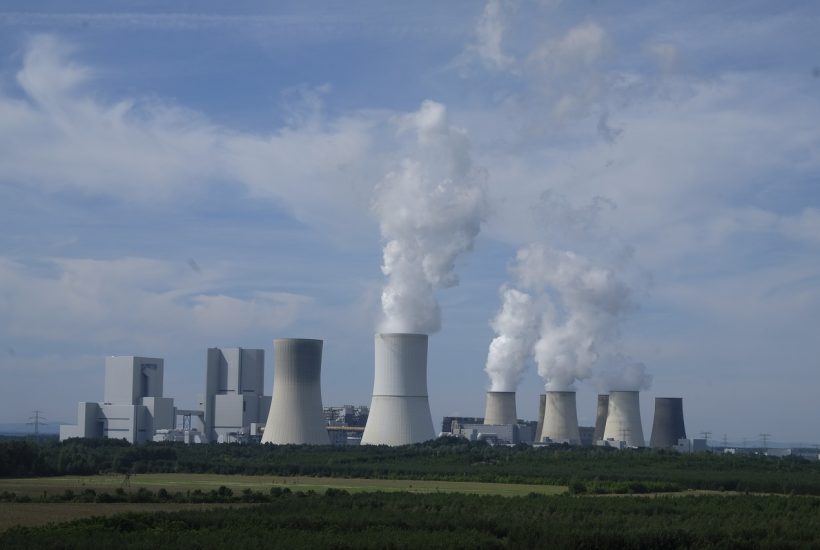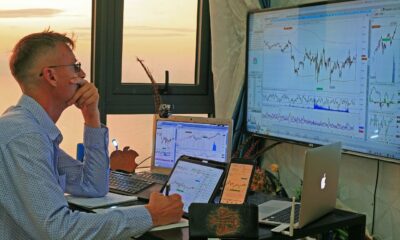Business
Nuclear Power Plants in Spain Set a Price of €67 per MWh
According to data from Foro Nuclear, the Spanish nuclear fleet consists of seven reactors in operation at five sites, with a combined gross installed power of 7,398.7 MWe (7,117 MWe net), about 6.31% of the total installed electrical power in the country. It generates between 55,000 and 60,000 GWh per year, more than 20% of the electricity consumed in the country.

A fixed price “of between €62 and €67 per MWh” for their electric power would be a solution that the nuclear sector would look favorably on – as long as their costs are maintained – for the reform of the electricity market.
“The Vice President of the Government and Minister for Ecological Transition and Demographic Challenge, Teresa Ribera, has said that the electricity market must be changed and she is right. It cannot be that for wind or photovoltaic energy producers, the variable cost is €0 and for us, it is €30 or €40 per MWh produced. The market needs renovation, although it has to be discussed. It is a very complex issue and it would be necessary to sit down and talk about it so that nuclear power plants do not continue to be cornered,” industry sources told El Independiente.
Read more about the Spanish nuclear sector and find the latest business headlines in the world with the Born2Invest mobile app.
According to data from Foro Nuclear, the Spanish nuclear fleet consists of seven reactors in operation at five sites
The Government’s proposal, based mainly on the development of long-term contracts to mitigate the volatility of energy prices, is a headache for the agents involved, especially the nuclear ones since if this formula were consolidated, the daily market would be considerably reduced and the nuclear or combined cycle plants would have a minimum weight. Hence the interest in wanting to set a price to abide by the system driven by Ribera. “Every MWh we produce, whatever they pay us, costs us only in taxes €25. If you charge €3 per MWh and it costs you €40, you have to stop. As nuclear can not do that, what we do is to lower the load because there is enough production for demand,” said the sources consulted, who say that if they are required to have their energy available to the market “we must see what costs we have and pay us so that we cover this expense and we can have a reasonable return.”
Ursula von der Leyen, president of the European Commission, stressed last summer that the purpose of the much-talked-about reform of the electricity market is to curb the rise in the electricity bill that “was designed for other circumstances” and that by linking the price of gas to that of other energies, it leads to these “exorbitant prices”.
The Spanish Wind Energy Association (AEE) and the Association of Renewable Energy Companies (APPA Renovables) have asked the Government to participate in the design of the reform so that there is consensus on the changes, without affecting renewable facilities currently in operation and future ones. Likewise, the Association of Electric Energy Companies (Aelec) has warned that the reform could increase regulatory uncertainty and affect the investments that the sector has to carry out in order to execute the energy transition.
Sources in the nuclear field understand that if their energy has to be available, the State has to make it viable. The capacity of nuclear power plants to adapt to the needs of the market is less than in cases such as hydro or wind power since it is not possible to “press the shutdown button just like that.” However, nuclear power plants guarantee electricity supply 24 hours a day, every day of the year, so they are a stable source that operates on a base, not dependent on external meteorological factors, which helps the management and stability of the electricity system. “We can be running at lower load but not continuously ramping up and down load. The fuel design is intended for general conditions, variations can be made, but with limitations.” In addition, another aspect that hampers nuclear power generation is that taxes are paid on production and not on billing or profits. “The companies that own nuclear power prefer to lower the load rather than sell it to their customers because the price is so low. It works out better to produce as little as possible from nuclear and buy electricity from other energy on the market because it is €3 per MWh and generating nuclear is worth €40 per MWh.”
According to data from Foro Nuclear, the Spanish nuclear fleet consists of seven reactors in operation at five sites, with a combined gross installed power of 7,398.7 MWe (7,117 MWe net), about 6.31% of the total installed electrical power in the country. It generates between 55,000 and 60,000 GWh per year -more than 20% of the electricity consumed in the country- becoming for more than a decade the first source of production in our electricity system.
__
(Featured image by Bru-nO via Pixabay)
DISCLAIMER: This article was written by a third party contributor and does not reflect the opinion of Born2Invest, its management, staff or its associates. Please review our disclaimer for more information.
This article may include forward-looking statements. These forward-looking statements generally are identified by the words “believe,” “project,” “estimate,” “become,” “plan,” “will,” and similar expressions. These forward-looking statements involve known and unknown risks as well as uncertainties, including those discussed in the following cautionary statements and elsewhere in this article and on this site. Although the Company may believe that its expectations are based on reasonable assumptions, the actual results that the Company may achieve may differ materially from any forward-looking statements, which reflect the opinions of the management of the Company only as of the date hereof. Additionally, please make sure to read these important disclosures.
First published in EL NDEPENDIENTE, a third-party contributor translated and adapted the article from the original. In case of discrepancy, the original will prevail.
Although we made reasonable efforts to provide accurate translations, some parts may be incorrect. Born2Invest assumes no responsibility for errors, omissions or ambiguities in the translations provided on this website. Any person or entity relying on translated content does so at their own risk. Born2Invest is not responsible for losses caused by such reliance on the accuracy or reliability of translated information. If you wish to report an error or inaccuracy in the translation, we encourage you to contact us.

-

 Africa6 days ago
Africa6 days agoMASI Surge Exposes Market Blind Spot: The SAMIR Freeze and Hidden Risks
-

 Crypto3 days ago
Crypto3 days agoIntesa Sanpaolo Signals Institutional Shift With Major Bitcoin ETF Investments
-

 Crypto2 weeks ago
Crypto2 weeks agoBitcoin Rebounds Above $70K as Crypto Markets Show Fragile Signs of Recovery
-

 Biotech1 week ago
Biotech1 week agoEurope Launches Personalized Cancer Medicine Initiative



















